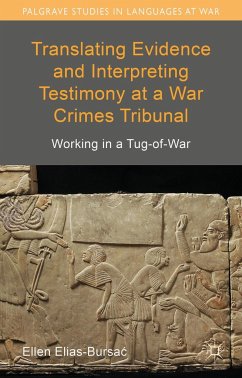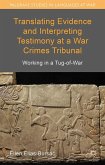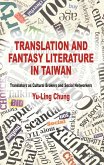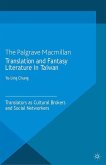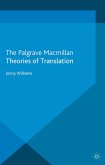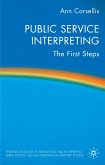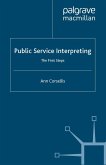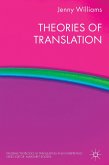This book analyses the ways interpreting and translating shape the work of the International Criminal Tribunal for the Former Yugoslavia, and war crimes tribunals more generally.
How can defendants be tried if they cannot understand the charges being raised against them? Can a witness testify if the judges and attorneys cannot understand what the witness is saying? Can a judge decide whether to convict or acquit if she or he cannot read the documentary evidence? The very viability of international criminal prosecution and adjudication hinges on the massive amounts of translation and interpreting that are required in order to run these lengthy, complex trials, and the procedures for handling the demands facing language services. This book explores the dynamic courtroom interactions in the International Criminal Tribunal for the Former Yugoslavia in which witnesses testify through an interpreter about translations, attorneys argue through an interpreter about translations and the interpreting, and judges adjudicate on the interpreted testimony and translated evidence.
How can defendants be tried if they cannot understand the charges being raised against them? Can a witness testify if the judges and attorneys cannot understand what the witness is saying? Can a judge decide whether to convict or acquit if she or he cannot read the documentary evidence? The very viability of international criminal prosecution and adjudication hinges on the massive amounts of translation and interpreting that are required in order to run these lengthy, complex trials, and the procedures for handling the demands facing language services. This book explores the dynamic courtroom interactions in the International Criminal Tribunal for the Former Yugoslavia in which witnesses testify through an interpreter about translations, attorneys argue through an interpreter about translations and the interpreting, and judges adjudicate on the interpreted testimony and translated evidence.
"This book is a comprehensive and richly descriptive history of translation and interpreting at the ICTY, dealing specifically with issues that arise from both the international character of the institution and the fact that it dealt with war crimes. ... The book is ... a very important contribution both to the study of translation and interpreting in war and conflict and in international institutions." (Simona Tobia, The Translator, Vol. 23 (2), March, 2017)
"Ellen Elias- Bursac systematically examines their lives and labors, describing vividly their many roles in the trials and the multiple challenges that bedevil their work. ... This book is one of the few richly descriptive works in the small but rapidly growing field of translation studies. ... Elias- Bursac has pioneered a method of inquiry that combines personal observation, survey research, and a systematic review of transcripts available online for each trial." (Robert Donia, Comparative Studies in Society andHistory, Vol. 58 (2), April, 2016)
"Ellen Elias- Bursac systematically examines their lives and labors, describing vividly their many roles in the trials and the multiple challenges that bedevil their work. ... This book is one of the few richly descriptive works in the small but rapidly growing field of translation studies. ... Elias- Bursac has pioneered a method of inquiry that combines personal observation, survey research, and a systematic review of transcripts available online for each trial." (Robert Donia, Comparative Studies in Society andHistory, Vol. 58 (2), April, 2016)

